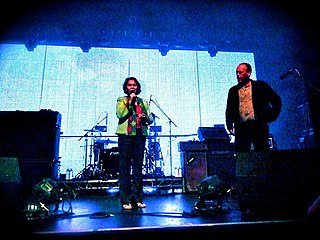A Quote by David Batstone
Slavery takes so many forms, as it is interwoven within legal industries and is embedded into the supply chain.
Quote Topics
Related Quotes
Al Qaeda is nothing more than a mutant supply chain. They're playing off the same platform as Wal-Mart and Dell. They're just not restrained by it. What is al Qaeda? It's an open source religious political movement that works off the global supply chain. That's what we're up against in Iraq. We're up against a suicide supply chain.
Suffice it to say that Wall Street investors in the drug industries have used the government to unleash and transform their economic power into political and global military might; never forget, America is not an opium or cocaine producing nation, and narcotic drugs are a strategic resource, upon which all of the above industries - including the military - depend. Controlling the world's drug supply, both legal and illegal, is a matter of national security.
Legality alone is no guide for a moral people. There are many things in this world that have been, or are, legal but clearly immoral. Slavery was legal. Did that make it moral? South Africa’s apartheid, Nazi persecution of Jews, and Stalinist and Maoist purges were all legal, but did that make them moral?
Combating climate change is absolutely critical to the future of our company,Green Cooler customers, consumers-and our world. I believe all of us need to take action now. PepsiCo has already taken actions in our operations and throughout our supply chain to 'future- proof' our company-all of which deliver real cost savings, mitigate risk, protect our license to operate, and create resilience in our supply chain.
I think comedy allows people to accept the more difficult parts of history. And history, if it's presented wrong, is just very depressing, particularly the history of slavery. If slavery is presented properly, it's a great story. But I think that within the commercial world of storytelling in which I live, there haven't been many strong works that discuss slavery in ways that are palatable and funny and interesting to the reader.































